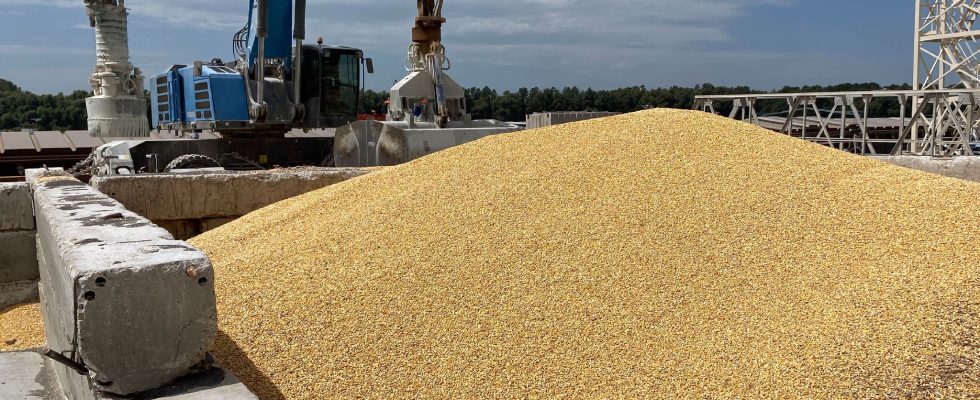Brussels announced this Friday, September 15, the end of any blockage on imports of Ukrainian cereals to all member states. The European Commission assures that kyiv has undertaken, in return, to control the influx of grain. “Ukraine has agreed to introduce legal measures within 30 days, for example, a system of export licenses to avoid surges” in grain volumes, explains the Commission. “Until then, Ukraine will implement effective measures from September 16 to control exports of wheat, corn, sunflower and rapeseed to avoid market distortion in neighboring EU states.”
Not enough to convince Poland, Hungary and Slovakia, who immediately announced that they would unilaterally maintain their ban. And this is in violation of the decision taken by the Commission, which has sole jurisdiction over the trade policy of the European Union (EU) – at the risk, as in the spring, of a political and legal standoff with Brussels. “Hungary will close its borders to 24 Ukrainian products”, so much more than the four currently concerned, in order to “protect the interests of farmers”, indicated Hungarian Minister of Agriculture Istvan Nagy. The Budapest embargo now also covers “flour, cooking oil, honey, certain meats and eggs”.
And one month before the elections in Poland, the populist right-wing government is making it “a fundamental question”. “We will undoubtedly defend the interests of Polish farmers,” said Prime Minister Mateusz Morawiecki, whose Law and Justice party enjoys strong support in agricultural regions. At the same time, the Slovak Minister of Agriculture, Jozef Bires, indicated that his country would “continue the embargo on grain from Ukraine”. Romania, for its part, was mixed about Brussels’ decision, saying it would wait for kyiv’s action plan before implementing possible measures.
kyiv relieved
The European Commission had in fact decided, at the end of April, to block exports of Ukrainian wheat, corn, rapeseed and sunflowers to five neighboring countries: Poland, Hungary, Slovakia, Bulgaria and Romania. The latter claimed that the influx of cereals was destabilizing their internal market and penalizing their farmers. As a result, they unilaterally banned imports, to stem the saturation of their silos and the collapse of local prices. Faced with this unprecedented situation, the Commission ended up supporting these five countries, thanks to exceptional aid of several tens of millions of euros, coupled with an embargo limited to these five Member States. In return, countries had to maintain the movement of grain to other destinations.
“Thanks to these temporary measures, market distortions in these five states have disappeared”, and the improvement in logistical conditions has made it possible to increase the delivery of cereals to other countries, welcomed the Commission. “As a result, the existing measures will expire today.” Kiev, fiercely opposed to the restrictions, welcomed “respect for free trade rules”: “This is an example of true unity and trust between Ukraine and the EU. Europe always wins when rules work and agreements are implemented,” responded President Volodymyr Zelensky.
“Solidarity” land and river corridors
Unlike its neighbors, Bulgaria announced on Thursday that it would lift the embargo in the name of “solidarity with Ukraine”. In the event of a violation of EU law, kyiv threatens to refer the matter to the World Trade Organization (WTO) to demand compensation. Some of the Twenty-Seven, led by France and Germany, judged these restrictions to be a breach of the rules of the internal market, denouncing distortions.
At the same time, the Europeans are trying to strengthen in all directions the routes for transporting Ukrainian grain to the rest of the world after the end of the agreement with Russia in mid-July to allow transit via the Black Sea. The EU has developed “solidarity” land and river corridors, through Poland and Romania, which have made it possible to transport 44.4 million tonnes of Ukrainian grain since the start of the war, or 60% of the Ukrainian production, in order to supply consuming countries, particularly in Africa.
